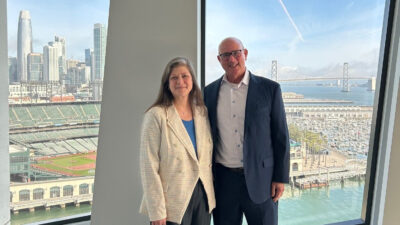New Research Supports Council’s Landmark ADU Initiative
Making more efficient use of the Bay Area’s already-developed urban and suburban areas to address the region’s housing crisis has been a primary goal of the Bay Area Council’s landmark efforts to promote accessory dwelling units (ADUs), also known as granny or in-law units. New research by a preeminent real estate economist suggests we’re on the right track. In a recent article, Issi Romem argues that allowing even slightly higher-density housing in existing neighborhoods can make a major dent in the housing shortage. That’s exactly what ADUs offer without generating the kinds of impacts that bring complaints from opponents of new housing. Romem is founder of MetroSight, a fellow at UC Berkeley’s Terner Center for Housing Innovation and former chief economist at Trulia and Zillow.
Romem analyzed 17 metro areas across the country and estimated that allowing a second unit (read ADU) on just 10% of single-family lots would increase the housing stock by 3.3 million units—a boost of almost 27% over current levels. Zooming into the Bay Area, the current development pattern would yield an approximate increase of 11.8 percent in housing units over the next two decades. Romem’s model suggests that if just 10% of Bay Area homeowners added an ADU, the region would see an 18.4% boost in housing—or more than 200,000 homes. Cities like Vancouver have shown it’s possible, with 35% of homeowners adding ADUs. And, those 200,000 housing units would be almost half the number the Bay Area is expected to need over the same period.
The Council has been a leading force behind a massive statewide surge in ADU construction over the past five years. We’re working on new legislative reforms this year to further ease regulatory barriers and lower fees on ADUs and we’ve developed an ambitious statewide campaign under the banner of the Casita Coalition to increase homeowners’ awareness of their options for adding an ADU. The Council is seeking support for our ADU Public Information Campaign. To learn more, please contact Senior Vice President Matt Regan.





